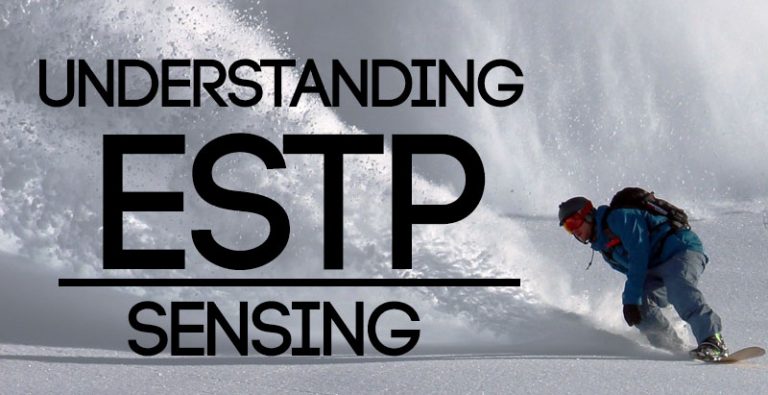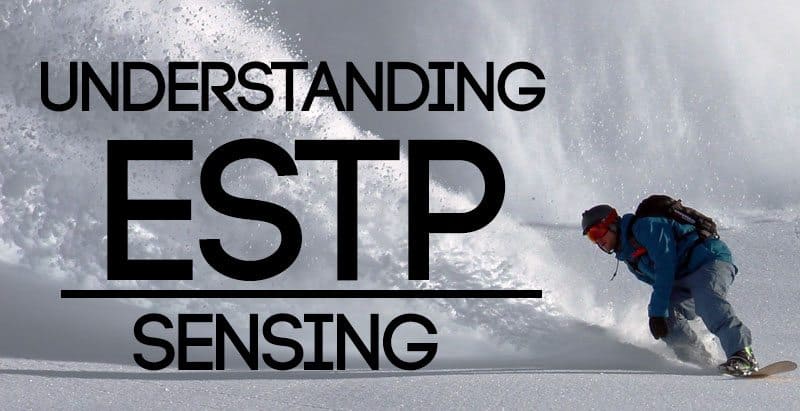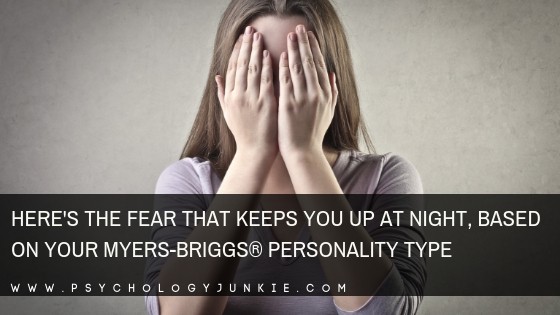Here’s What Comforts You, Based On Your Personality Type
Not sure what your personality type is? Take our new personality questionnaire here. Or you can take the official MBTI® here.
Table of contents
Estimated reading time: 13 minutes

The ENFP
When you’re feeling sad or down it’s comforting to get some time alone to listen to music, be in nature, or explore a new environment. New beautiful sights help you to feel less trapped. After some time alone you might find encouragement through talking to a trusted friend. It’s important that your friend really listen to your heart and not just try to force a particular mood from you. You want someone to walk with you into your darkness and truly empathize with what you are experiencing. You don’t want someone who’s going to pressure you to make a quick mood change or who’s going to offer you a lot of practical solutions right away. Solutions are for later, when you feel calmer and more at peace with the world.
Read This Next: 3 Weird and Wonderful Secrets About the ENFP
The ENTP
When you’re feeling overwhelmed or sad it often comforts you to get away from everyone and everything. Take some time to check in with your body. Have you had enough sleep, enough food, or enough water? ENTPs notoriously forget their physical needs as they pursue new ideas and projects. Take some time to eat a healthy meal, go for a jog, or take a nap. Exploring a new environment can also help you to feel more optimistic. Go somewhere new and walk around and take in the sights and experiences around you. When you feel like you’re physically and mentally more calm, ask one of your trusted friends or family members for some help. Find someone who can listen with empathy and support before trying to offer solutions or brainstorm new ideas.
Read This Next: 10 Surprising Truths About ENTPs
The INFP
When you’re feeling unhappy or overwhelmed it’s important for you to get some peace and quiet away from the crowds and noise of the world. Many times listening to peaceful music, especially songs you’ve known and loved for a long time, can help bring you back to equilibrium. Wrapping up in a blanket and reading a favorite book or just allowing yourself to let the feelings channel through you can be helpful. Journaling is also helpful because sometimes it can feel like your emotions are swirling around inside you like a whirlwind and you can’t even figure out what they all mean. Writing your feelings down can help you to put words to your emotions and provide an outlet for them. When you’re ready, try to find someone to talk to who has your absolute trust. Is there someone who will just let you “vent” without judging you? Someone who can listen without trying to make you feel bad about your feelings? That’s the kind of person you need.
Read This Next: 24 Signs That You’re an INFP, the Dreamer
The INTP
When you’re feeling exhausted and sad it’s important for you to get some time alone to sort everything out internally. You might feel comforted by revisiting a favorite song, movie, or book that you’ve enjoyed since childhood. The familiar can be comforting and calming during high-stress moments. It’s important for you not to get too reclusive, though. After some time it can be therapeutic to get a change of scenery, walk around somewhere new, or talk to a trusted friend. Is there someone who will let you “vent” without judging you or jumping to conclusions? For you, the important thing is to be able to talk to someone without feeling judged, criticized, or overwhelmed with hasty solutions. It can be tempting to completely isolate yourself during sadness – and that’s fine for a little while. But too much of it can get you into an unhealthy introverted thinking-introverted sensing loop. So try to get out after a little while, talk to people you trust, and spend some time in nature.
Find out More About INTPs: 3 Weird and Wonderful Secrets About the INTP
The ENFJ
When you’re feeling gloomy or overwhelmed it can be very comforting to be in the presence of the people you trust. You want to be able to fully express what’s going on in your heart and find validation and affirmation from loved ones. It’s important to you not to be judged or given a lot of practical solutions at this time. You just need to be able to get your emotions and feelings outside of yourself so you can process them and work them out. It can also be comforting for you to get a change of scenery. Getting away from the location of something negative can instantly lift your mood. Being in nature, visiting a favorite coffee shop, or walking along the beach can all help you to feel re-energized. Many ENFJs also feel comforted by listening to songs that resonate with their feelings but have an upbeat, optimistic tempo.
Find out More: 24 Signs That You’re an ENFJ, the Mentor
The ENTJ
When you’re sad or frustrated, you tend to find comfort in getting out of your current location. Whether you simply leave the room or drive across town, going somewhere different seems to help you calm your nerves. Exercise is also relaxing and de-stressing for you. After you’ve had a little time to yourself, talking to a trusted friend or advisor can be really encouraging. Being able to “vent” to someone you trust without being judged, criticized, or coddled is important to you. You don’t want anyone to be overly-sympathetic or emotional with you – you just want to be listened to in an understanding way. After you’ve had the chance to get all your frustrations out of your system you enjoy being able to discuss information or ideas that can lead to practical solutions.
Find Out More: 10 Things You’ll Relate to If You’re an ENTJ
The INFJ
When you’re feeling especially down, you find comfort in getting some time to yourself in a peaceful, quiet environment. Being able to wrap up in a blanket and listen to a favorite song or read a favorite book can be calming for you. It can also be helpful to take care of yourself physically. As an intuitive-dominant personality type, it can be easy for you to forget to take care of your sensing/physical needs. Taking a hot bath, eating a healthy meal, staying hydrated, or catching up on sleep are all ways that you can feel better. After some time alone finding a trusted friend that you can really be honest with is important. You need to be able to “vent” without feeling judged or analyzed. You don’t want someone to try to give you a bunch of practical solutions right away either. That’s for later when you feel more calm and composed. If you don’t have someone you can talk to, or you don’t feel ready to talk to anyone, journaling is also a good option. Getting your feelings outside of yourself in some form will help you to feel like you’ve got a better handle on things.
Read This Next: 24 Signs That You’re an INFJ, the Mystic
The INTJ
When you’re feeling sad or overwhelmed you find comfort in getting away from the commotion and noise of daily life. Getting alone in a quiet, tranquil environment, dimming the lights, and having complete stillness for a while helps you to regain composure. It’s important during this time to take a moment to assess your physical needs. As an intuitive dominant personality type, it can be easy for you to forget what your body needs. Make sure you’re drinking enough water, getting enough rest, and take a moment to take a hot shower, bath, or just get some fresh air. Look at your schedule as well; are there any activities you can cancel without negative consequences? Lightening your workload and freeing up some time can give you a feeling of comfort. After some quiet time alone, it can be helpful to talk to a friend who understands you and has established trust with you. Ideally, this person would let you talk without judging you or getting too emotional about things. You want someone who can just listen without interrupting and eventually offer some ideas that might lead to solutions.
Read This Next: 3 Weird and Wonderful Secrets About the INTJ
The ESFP
When you’re feeling overwhelmed and down it can be helpful to find a good friend to talk to. You want someone who is a good listener, patient, and non-judgmental. The last thing you need is someone interrupting you with solutions or criticisms. Right now what you need is someone who can just be with you in your darkness and accept you for where you are right now. Sometimes getting alone is helpful, this gives you a chance to really reflect on what’s happened, what the facts are, and how you really feel about it. Coming up with some plans can also help you. Whether it’s a fun activity you can anticipate, a contingency plan, or a practical solution. Getting a change of scenery, listening to music, or getting a hug from someone you really trust can also be very therapeutic.
Read This Next: What It Means to be an ESFP Personality Type
The ESTP
When you are feeling disillusioned or down, it’s important for you to get some time to yourself. You need to get away from everyone and everything and just get alone to regain equilibrium. Coming up with a contingency plan or positive experience to look forward to can also be a comfort. You like to know that you have options, and you tend to generate a lot of options naturally so that if one plan falls through there are several others that can take its place. Getting out and being in nature can also lift your spirits. You probably feel better when you can get a change of scenery, go for a jog, or take part in a recreational activity. While you may enjoy talking to a good friend or venting, it’s also important to you that the person you’re talking to not get too emotional or overly-sympathetic. You HATE being pestered about your emotions.
Read This Next: 24 Signs That You’re an ESTP, the Daredevil
The ISFP
When you feel overwhelmed with life it’s important for you to get away from all the pressures and commotion of the outside world. You need to just get alone and let yourself reflect on everything that’s going on in your heart. The last thing you need is a lot of advice, criticism, or solutions. That can wait till you’re feeling a little bit better. When life is at its worst you just need to let the emotions channel through you. Sometimes listening to music or watching a favorite movie that mirrors how you feel can be therapeutic. Catching up on some quiet exercise and a nap can also help you to feel renewed. When you feel a little calmer see if you can find someone you trust to talk to. Ideally, this person would be non-judgmental, a good listener, and would allow you to express yourself without trying to “change” your mood too quickly. You want to be with someone who can just be with you where you’re at and not pressure you in any way.
Read This Next: 10 Things You’ll Relate to If You’re an ISFP
The ISTP
When you’re sad or frustrated it’s important for you to get away from all the noise and chaos of day-to-day life. Find a quiet place, either at home or in nature, where you can process what you’re feeling and thinking about. Look at your to-do list and see if there are any non-essential responsibilities you can cancel. The mere act of lightening your to-do list can help you to feel more optimistic. Sometimes getting your adrenaline out in a physical way can also be helpful. Try going for a jog, hiking, or swimming. After some time alone it’s very helpful to talk to someone who can listen without judging, criticizing, or trying to coddle or over-sympathize with you. You tend to dislike it when people ask you a lot of questions about your feelings.
Find Out More About ISTPs: Understanding ISTP Thinking
The ESFJ
When you are struggling with sadness or gloom it’s important for you to find new avenues for inspiration. Many ESFJs report that they feel better when they can get a change of scenery, go somewhere new or spend time outdoors. Simply being somewhere that is fresh and interesting can help you to find solutions and ideas that lead to renewed optimism. Talking to a close friend is also important to you. You want to be able to vent about what you’re going through without having to worry about being judged, criticized, or given a lot of “quick fixes”. It’s important to get empathy and validation for what you are going through, not just a bunch of advice. You may also feel better if you can find a quiet, calming activity to get absorbed in. Many ESFJs report that gardening, sewing, cooking, or playing music can help them to feel comforted.
Read This Next: 24 Signs That You’re an ESFJ
The ESTJ
When you are feeling overwhelmed or dismal, it’s important for you to get a little time to yourself to just breathe and reflect. You need to take a break from all your responsibilities and tasks and just quiet your mind. The last thing you need is someone smothering you or asking, “Are you okay?” every five minutes. Exercising, catching up on some rest, or showering can also help you to feel renewed. When you’re in the shower just imagine that you’re washing away all the worries, stressors, and bad experiences of the day. After some time alone see if there is a trusted friend that you can talk to. Being able to vent about your problems and struggles without judgment or criticism is important. Having someone who can help you to see things in a new perspective or give you information that might lead to solutions can help you to feel not so “stuck.”
Read This Next: 24 Signs That You’re an ESTJ
The ISFJ
When you are sad or stressed it’s important for you to get some time alone to not worry about what anyone else thinks or needs. It’s hard for you to fully relax around other people, so some quiet and solitude can help you process your thoughts and feelings. It’s also a good idea to take a moment and consider your physical needs. You can get so busy taking care of other people and your to-do list that you risk burnout. Take a walk somewhere quiet and beautiful, make sure you’re hydrated, take a hot shower or catch up on some rest. If you feel like your emotions are eating you up from the inside try getting a journal and writing down your feelings as they occur to you. Re-read what you wrote and see if that helps you to organize your feelings any better. Many times FJ types struggle with processing their emotions internally, so journaling can help. You could also consider talking to a friend you trust who can provide empathy and validation for what you are going through.
Related: 10 Things You Should Never Say to an ISFJ
The ISTJ
When life feels draining and depressing it’s important for you to balance getting some time alone and some time with someone you trust. Many times a peaceful, quiet environment where you can process your thoughts and feelings is ideal. Canceling some non-essential plans can help you to feel less overwhelmed. Letting yourself sit with your feelings, no matter how hard they are, and just let them come and go is important. If you feel like nothing is helping, try talking to a friend who is a very good listener. Ideally, this would be someone who isn’t quick to judge, criticize, or get emotional. You don’t want a lot of coddling or optimistic one-liners, you just want someone who can listen and be with you where you’re at right now. You may also find it comforting to watch a favorite movie or listen to a favorite song.
Related: 10 Things You Should Never Say to an ISTJ
What Are Your Thoughts?
Do these ideas comfort you? Do you have any other ideas? Share your thoughts with readers in the comments!
Find out more about your personality type in our eBooks, Discovering You: Unlocking the Power of Personality Type, The INFJ – Understanding the Mystic, The INFP – Understanding the Dreamer, and The INTJ – Understanding the Strategist. You can also connect with me via Facebook, Instagram, or Twitter!















Good article but it’s bugging me and I have to let you know it isn’t “chance of scenery”, it’s “change of scenery.” Sorry to be pedantic but it was a little distracting considering it’s listed as what just about every type finds comforting… :/
Holy cow, I don’t know how that happened. I meant to write change of scenery – I wonder if my new version of word autocorrected it to chance? That’s so weird! Thank you for letting me know so that I could fix it!
A lot of the different types seem to have the exact same need. All of the sections end with being able to vent to a trusted confidant in one way or another. I do see some variance but it all boils down to be around people or not and then vent to someone.
I read every section a s they all seem to be saying the same thing unfortunately. For everytime it is basically being around people or being more isolated for a time. Then revisiting your favorite books, music or movies. And lastly find a trusted friend to vent to. I’m a little let down that there wasn’t a more unique way of comfort for any of the types.
Hi Susan, I’m a INFJ personality. I find myself not be able to find anyone to talk to who will really listen to me, and share intelligent conversation. I hate small talk, Sports with all of it’s hype. People just seem very shallow. Where are the people that have some wisdom and depth? Intelligence?
Have you tried joining an online support group or INFJ group? Perhaps you could find deeper conversation there! I rarely see anyone discussing sports in such groups 🙂 Sometimes there are meetups that center around specific topics as well.
I didn’t read them all ✋🏽 Maybe later, but I want to say that while I type myself as an ISTP, but didn’t relate to what was said about it, I did GREATLY relate to the INTP. (the type I get everytime I take the test.) not only does it comfort me when I am stressed to do something that reminds me of childhood, but finding a song from childhood that I’ve forgotten until then brings me SO much joy. And for the types having similar solutions to comfort, I think it makes sense. It can’t be too specific for someone with the type, because every person is WAY too unique to even be the same as their fellow same-types. And it’s not “Extroverted types feel better around people”, and “introverted types feel better alone”, or anything similar to that. I think the INTP thing is spot on for me, because it is something that has been true for me since I could remember and I can’t think of a cause for it being that way.
People have one thing in common: we all need someone to vent to, and we all need a break at some point. Anyone who doesn’t need either is going to be the first person like that. You might be able to bottle up the stress and feelings and thoughts but at some point it’ll be too much. Even writing in a journal can help, but everyone needs a friend to talk to. I feel very sad for those who cannot find anyone, because I know what it’s like to not have something to release pressure. I’m feeling it right now actually